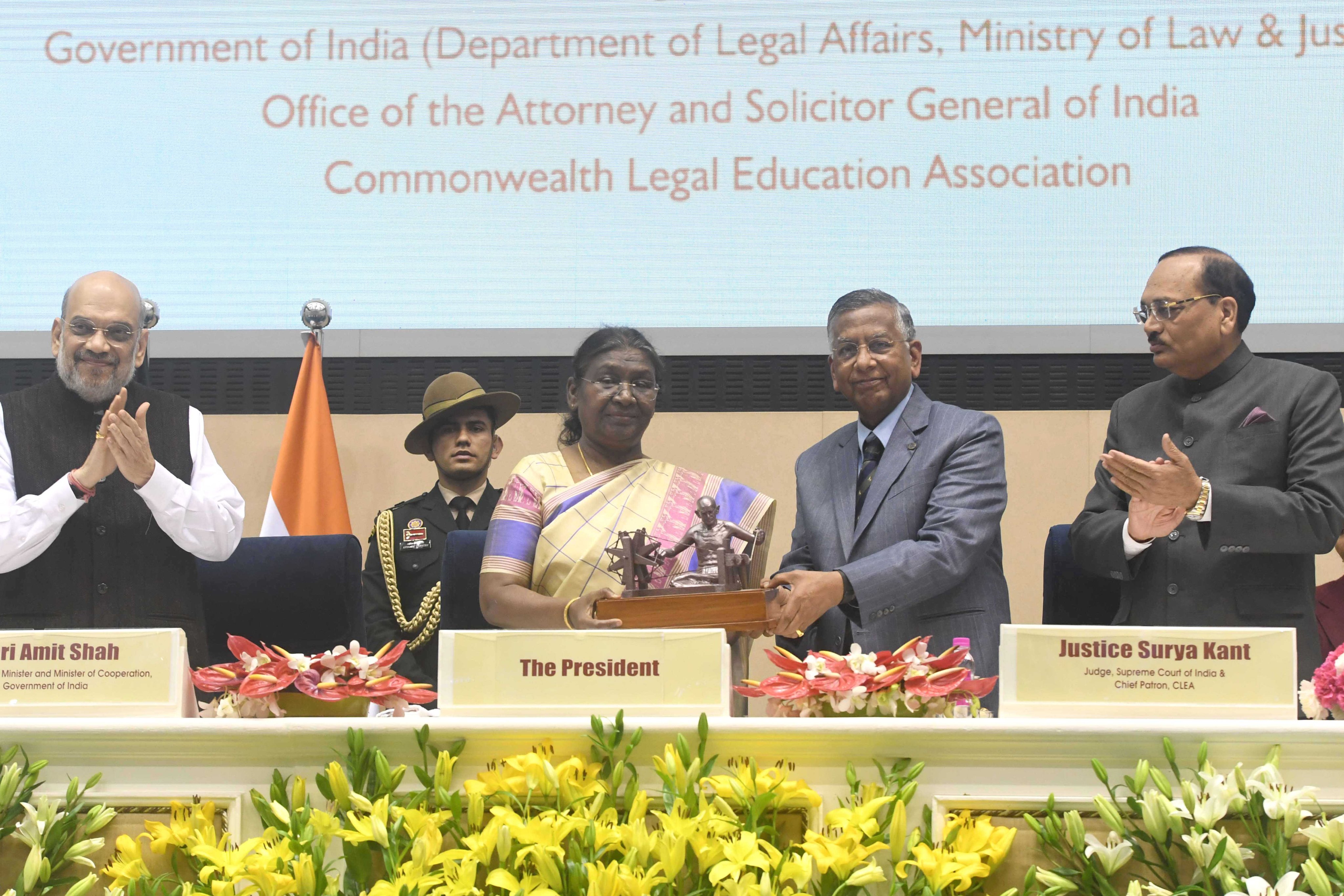Last Updated on February 5, 2024 1:32 am by INDIAN AWAAZ

AMN / NEW DELHI
President Droupadi Murmu on Sunday said that India has emerged as a key stakeholder in the global discourse.
India, she said, has much to offer when it comes to international issues in justice delivery. ”India is not only the biggest democracy, but history shows that it is also the oldest democracy. With that rich and long democratic heritage, we can offer our learning in justice delivery in modern times,” she added.
The President was addressing the valedictory function of the Commonwealth Legal Education Association (CLEA) – Commonwealth Attorneys and Solicitors General Conference (CASGC) 2024 in New Delhi. Home Minister Amit Shah also spoke at the function.
President Murmu said what is right and just is also logically sound. These three qualities combine to define the moral order of a society. That is why the representatives of the legal profession and the judiciary, are the ones who help in upholding the order. If that order is challenged, they are the ones who, as lawyers or judges, law students or teachers, strive most to set it right again, she added.
The President said that the Preamble to the Constitution speaks of “Justice, social, economic and political”. ”Therefore, when we speak of ‘justice delivery’, we should keep in mind all aspects of it, including social justice.”
She stated that in recent times, as the world faces the threat of climate change, environmental justice should also be added to these varied aspects of the concept of justice. As it happens, the issues of environmental justice often pose cross-border challenges.
They form the key area of what this conference is about, namely, ‘Cross-Border Challenges in Justice Delivery’. She was happy to note that CLEA has taken the responsibility to chart a roadmap to a common future that transcends borders and underlines the fundamental principles of natural justice based on equality and dignity.
She expressed confidence that the Commonwealth, with its diversity and legacy, can show the rest of the world the way to address the common concerns in a spirit of cooperation.
Noting that ‘Access to Justice: Bridging the Divide’ was one of the sub-themes of the conference, the President expressed confidence that the discussions in the conference must have been enriched by the participation of deans and vice-chancellors as well as senior students and scholars of various institutions and universities.
She said that young minds are flexible and can offer innovative and out-of-the-box solutions to the problems that have challenged the most experienced professionals.
The conference was aimed to deliberate on important issues pertaining to law and justice like judicial transition and the ethical dimensions of legal practice; executive accountability; and revisiting modern-day legal education, among others.
